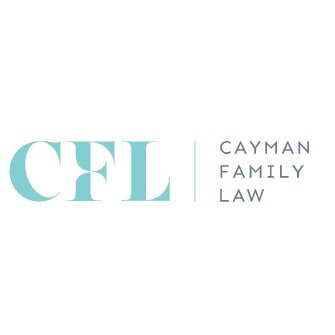Best Estate Planning Lawyers in Cayman Islands
Share your needs with us, get contacted by law firms.
Free. Takes 2 min.
Or refine your search by selecting a city:
List of the best lawyers in Cayman Islands
About Estate Planning Law in Cayman Islands
Estate planning in the Cayman Islands involves the process of making arrangements for the disposal of one's assets after their passing. This can include wills, trusts, powers of attorney, and other legal documents to ensure that your wishes are carried out and your assets are distributed according to your desires.
Why You May Need a Lawyer
There are various situations where you may require legal help in estate planning, such as: - Creating a comprehensive estate plan to protect your assets and ensure they are distributed as you wish - Designating guardians for minor children - Minimizing estate taxes - Ensuring your wishes are legally binding and enforceable - Resolving disputes among family members or beneficiaries
Local Laws Overview
In the Cayman Islands, the Succession Law governs the distribution of a deceased person's estate. It is important to be aware of the local laws regarding wills, trusts, and probate to ensure your estate plan is valid and legally binding. Consulting with a knowledgeable estate planning lawyer can help you navigate these laws and ensure your wishes are carried out effectively.
Frequently Asked Questions
1. What is the difference between a will and a trust?
A will is a legal document that outlines how your assets will be distributed after your passing, while a trust is a legal arrangement where a trustee holds assets on behalf of beneficiaries.
2. Do I need a lawyer to create an estate plan?
While you can create a basic estate plan on your own, consulting with a lawyer can ensure that your plan is comprehensive and legally sound.
3. How often should I update my estate plan?
It is recommended to review and update your estate plan every few years or whenever you experience a major life event, such as marriage, divorce, birth of a child, or acquiring new assets.
4. Can I contest a will in the Cayman Islands?
Contesting a will in the Cayman Islands is possible under certain circumstances, such as lack of capacity, undue influence, or fraud.
5. What is probate and do I need it?
Probate is the legal process of validating a will and distributing assets according to its terms. Whether you need probate depends on the nature and location of your assets.
6. Can I create a trust to avoid estate taxes?
Creating a trust can help minimize estate taxes, but it is important to consult with a lawyer to ensure your trust is structured correctly to achieve this goal.
7. How can I protect my assets from creditors?
Asset protection strategies, such as creating a trust or incorporating offshore entities, can help shield your assets from creditors.
8. What happens if I die without a will in the Cayman Islands?
If you die without a will (intestate), local laws will determine how your assets are distributed among your heirs according to the rules of intestacy.
9. Can I make changes to my estate plan after it is finalized?
Yes, you can make changes to your estate plan at any time by creating an amendment (codicil) to your will or modifying your trust document.
10. How can I find a reputable estate planning lawyer in the Cayman Islands?
You can ask for recommendations from friends or family, research online, or contact the Cayman Islands Bar Association for a list of qualified estate planning lawyers in the area.
Additional Resources
For additional resources and information on estate planning in the Cayman Islands, you may consider contacting the Cayman Islands Financial Services Association or the Cayman Islands Law Society for guidance and support.
Next Steps
If you need legal assistance in estate planning in the Cayman Islands, the next step is to schedule a consultation with a reputable estate planning lawyer. During the consultation, you can discuss your goals, concerns, and objectives to create a customized estate plan that meets your needs and ensures the protection of your assets.
Lawzana helps you find the best lawyers and law firms in Cayman Islands through a curated and pre-screened list of qualified legal professionals. Our platform offers rankings and detailed profiles of attorneys and law firms, allowing you to compare based on practice areas, including Estate Planning, experience, and client feedback.
Each profile includes a description of the firm's areas of practice, client reviews, team members and partners, year of establishment, spoken languages, office locations, contact information, social media presence, and any published articles or resources. Most firms on our platform speak English and are experienced in both local and international legal matters.
Get a quote from top-rated law firms in Cayman Islands — quickly, securely, and without unnecessary hassle.
Disclaimer:
The information provided on this page is for general informational purposes only and does not constitute legal advice. While we strive to ensure the accuracy and relevance of the content, legal information may change over time, and interpretations of the law can vary. You should always consult with a qualified legal professional for advice specific to your situation.
We disclaim all liability for actions taken or not taken based on the content of this page. If you believe any information is incorrect or outdated, please contact us, and we will review and update it where appropriate.
Browse estate planning law firms by city in Cayman Islands
Refine your search by selecting a city.
















